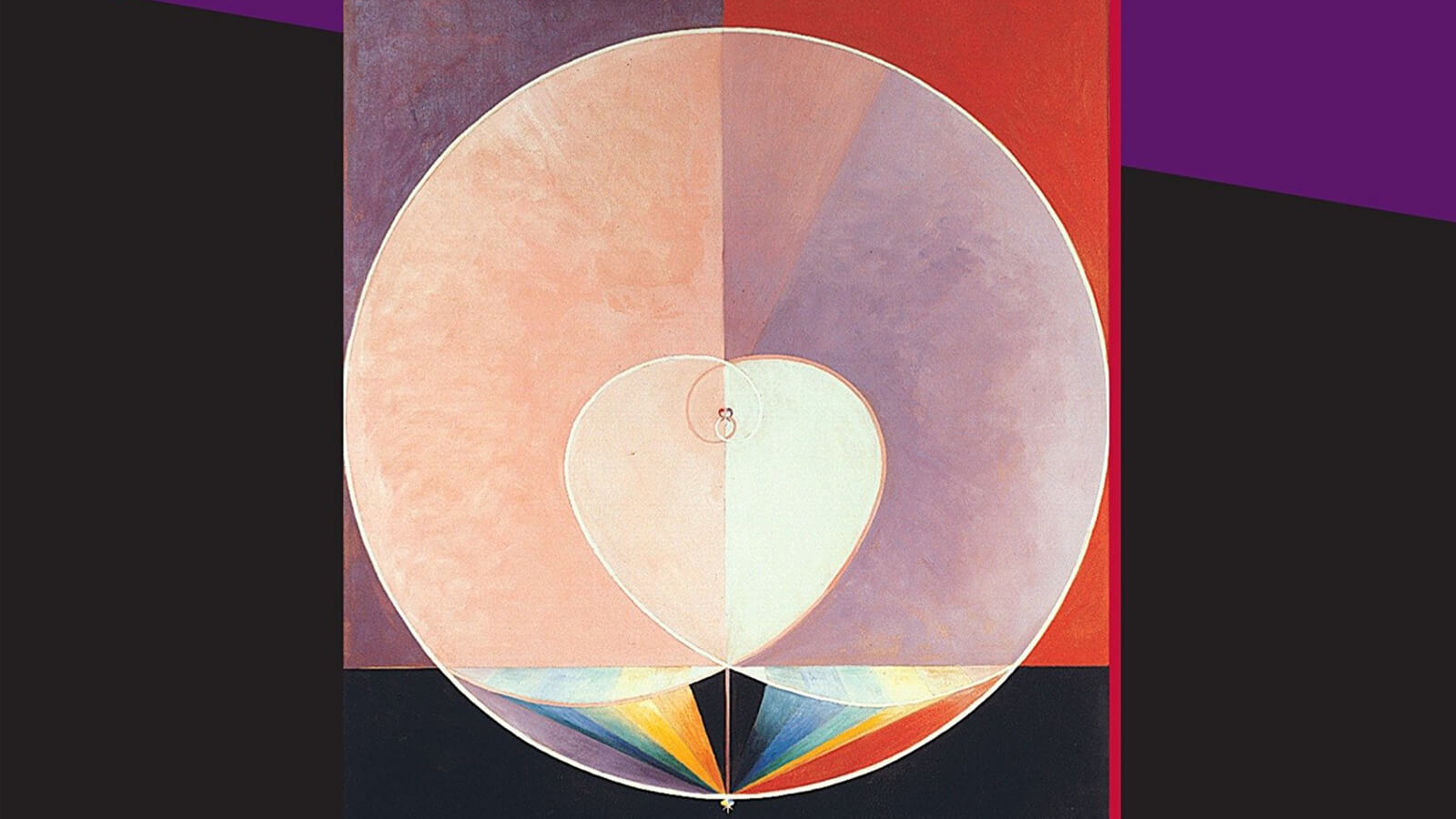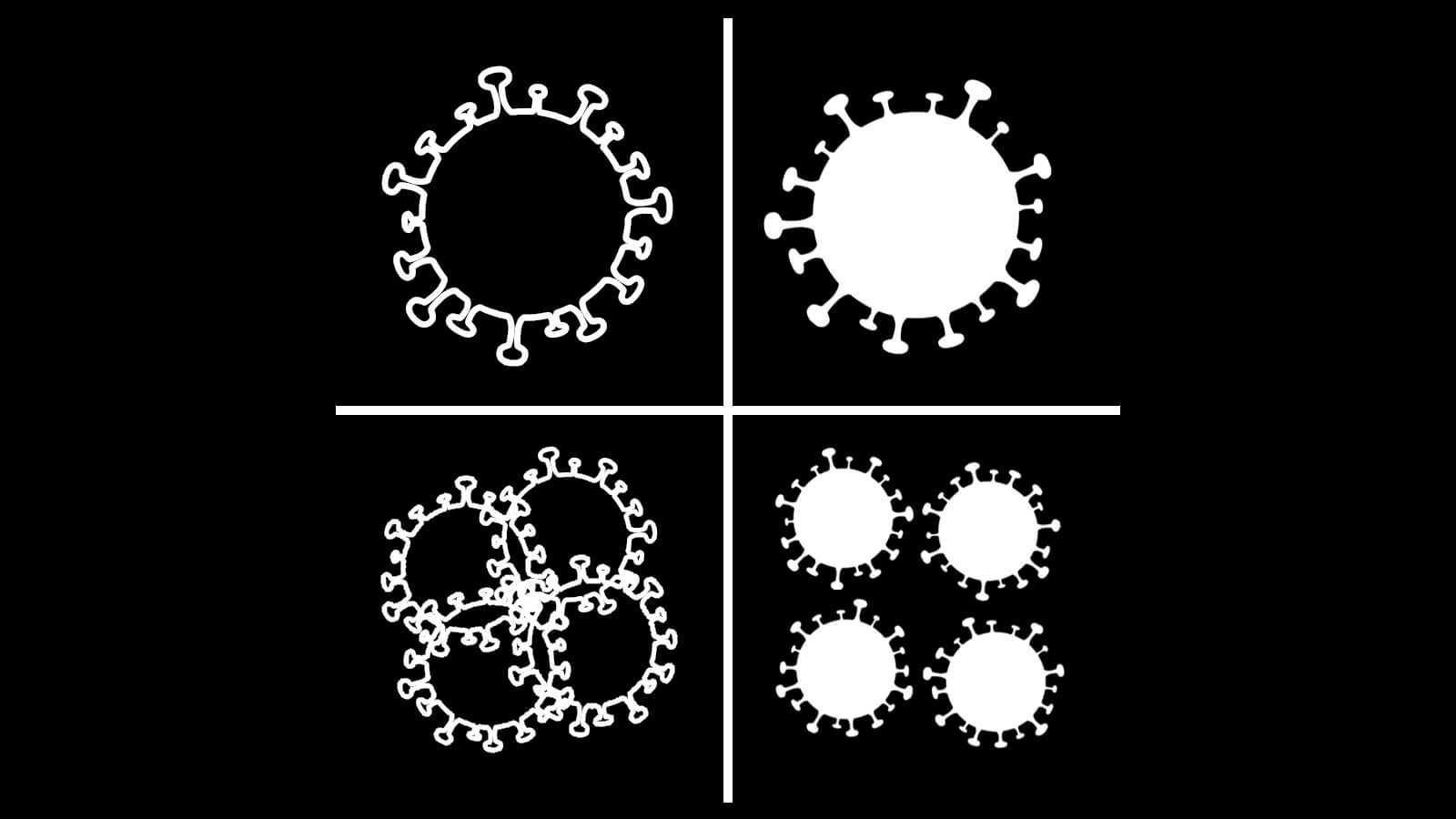“Metaphysics is generally taken to be the branch of philosophy that deals with issues of ontology (what is being or reality?) and epistemology (how do we know it?). The term was first prominently used by Aristotle’s students for a book they called Metaphysics simply because it was written after his book on Physics. That’s as good a reason as any, I suppose.
If metaphysics began with Aristotle, it ended with Kant. Or, at any rate, took a turn that has defined the way sophisticated philosophers think about reality ever since. Kant’s critical philosophy replaced ontological objects with structures of the subject. In essence, this means that we do not perceive empirical objects in a completely realistic, pregiven fashion; but rather, structures of the knowing subject impart various characteristics to the known object that then appear to belong to the object—but really don’t; they are, rather, co-creations of the knowing subject. Various a priori categories of the knowing subject help to fashion or construct reality as we know it. Reality is not a perception, but a conception; at least in part. Ontology per se just does not exist. Metaphysics is then a broad name for the type of thinking that can’t figure this out. Or, metaphysics is thinking that falls prey to the myth of the given.
What this means for spirituality in general is that metaphysics needs to be jettisoned, or at the very least, completely rethought. All of the traditional categories of metaphysics—including God, immortality, the soul, mind, body, and knowing—simply cannot stand up to the scrutiny of critical thinking, not in their fundamental, pre-critical, ontological forms. In the modern and postmodern world, they are simply obsolete notions that are as embarrassing to religion as, say, phlogiston, St. Vitus’s dance, and phrenology are to medicine.”Ken Wilber, Integral Spirituality
Topics include:
Part 1: What Is Epistemology?
Part 2: Empiricism
Part 3: Rationalism
Part 4: Skepticism
Part 5: Pragmatism
Part 6: Naturalized/Evolutionary Epistemology
Part 7: Feminist Epistemology
Part 8: Relativism & Constructivism
Part 9: Idealism
Part 10: Bayesian epistemology
Part 11: Indian Pramana
Part 12: How Do We Categorize Integral Theory?
Part 1: What Is Epistemology?
Become a supporting member to watch the full conversation
Humanity is entering the Transformation Age, a new era of human civilization, with Integral Consciousness rising at its leading edge. Our members don’t use Integral Life as just another media subscription they use weekly or discard. Instead, most stay with us for years, using Integral Life to learn Integral Philosophy and build an integral mind slowly, methodically and when they need it. We’re here to help you shape the future that’s emerging no matter where your life takes you.
Get Full Access For $1 (7 days)* Or explore all membership plans → * Trial price for the first 7 days, then $20/month. Cancel or switch plans in 2 minutes at any time.How do we know stuff? Like all of the great philosophical quandaries, it’s a fundamentally straightforward question that can lead us into an endlessly branching series of chicken-and-egg meditations on the nature of existence (ontology) versus the nature of knowledge (epistemology). And it’s a topic that is immediately relevant to today’s world, to our understanding of current events, and to our various strategies and processes of sense-making.
This is particularly true here in the social media age. It’s always been the case that we’ve had multiple conflicting epistemologies, but until recently we’ve generally lived in a far more curated media space. We’ve relied upon informational referees who would enforce certain epistemologies over others (for better and/or for worse). But civilization itself is now operating on fully postmodern media platforms with no built-in curation or enfoldment mechanisms at all, where everyone with a smart phone can either contribute to, or corrupt, our sense of shared reality.
We are now curators of our own informational terrains. Our online media habits quickly become epistemic silos, reinforced with every click by the hidden algorithms of Google, Facebook, Youtube, etc. This has resulted in the total epistemic breakdown we are now in the midst of, giving rise to everything from Flat Earthers to delusional QAnon conspiracies — all products of broken epistemologies. Ironically, it may be the phrase “do your research” that brings about the death of knowledge.
This is why this discussion about epistemology is so important. These aren’t just stodgy schools of philosophy to be discussed in lecture halls — all of us are walking around with our own personal epistemologies we use to make sense of the world, whether consciously examined or not. And these personal epistemologies are at least partially informed by these major schools of thinking — often inherited in their general forms, but inconsistently and idiosyncratically assembled — as well as any number of pre-rational forms of sense-making. The hope here is that by better understanding and applying all of these different epistemological lenses we can achieve a far more comprehensive and integral view, while bringing more awareness to our own epistemological assumptions, biases, and blind spots.
At its core, our clash of civilizations is a clash of truth-claims — a clash of epistemologies — made all the worse by our current epistemological crisis and collapse. Aperspectival madness, as we like to say.
In this fascinating episode of The Ken Show, we take a look at a dozen of the most popular schools of epistemological thought — idealism, pragmatism, empiricism, constructivism, etc. — noting their respective contributions and limitations, and how they can all be pulled together into a more Integral epistemology that can help us take the next step out of the aperspectival madness we are all currently immersed in.
Part 2: Empiricism
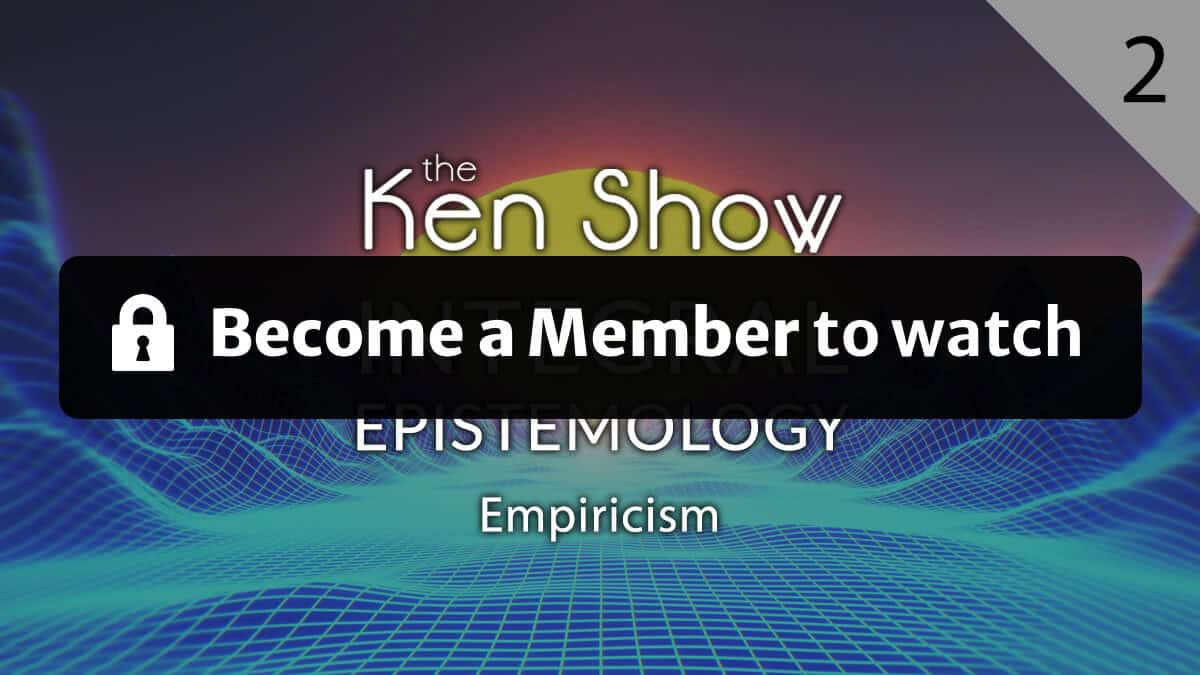
Empiricism is a view in the theory of knowledge which focuses on the role of experience, especially experience based on perceptual observations by the senses, in the generation of knowledge. Certain forms exempt disciplines such as mathematics and logic from these requirements.
There are many variants of empiricism, including British empiricism, logical empiricism, phenomenalism, and some versions of common sense philosophy. Most forms of empiricism give epistemologically privileged status to sensory impressions or sense data, although this plays out very differently in different cases.
Some of the most famous historical empiricists include John Locke, David Hume, George Berkeley, Francis Bacon, John Stuart Mill, Rudolf Carnap, and Bertrand Russell.
Part 3: Rationalism
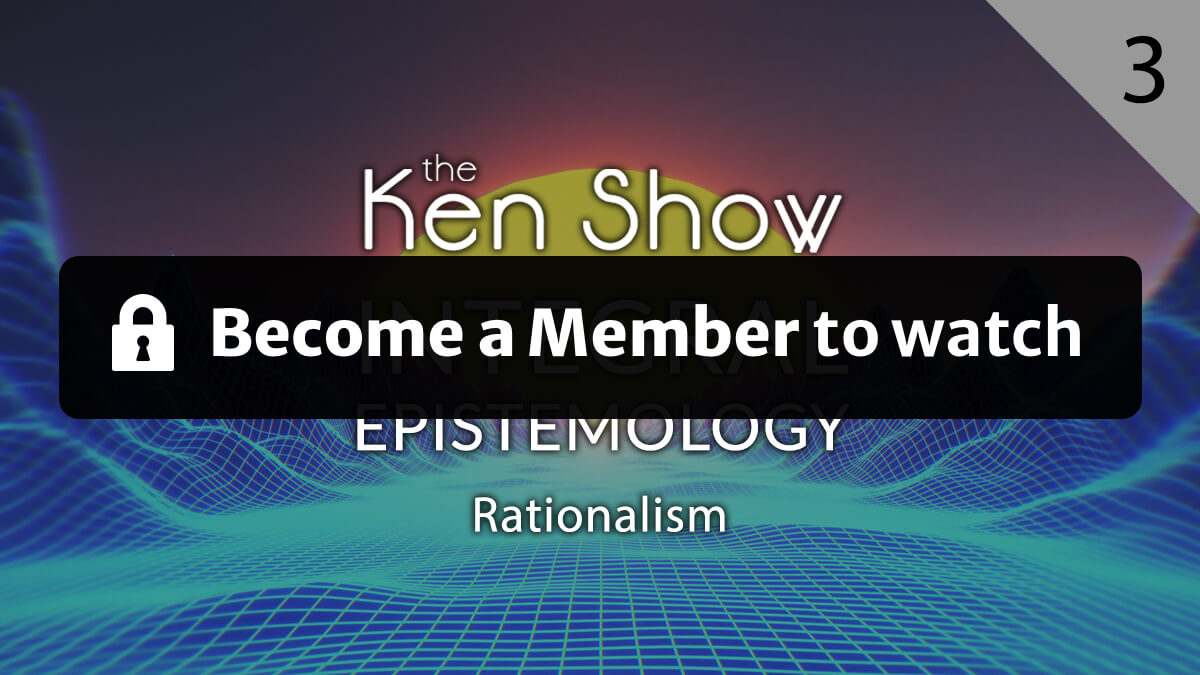
Rationalism is the epistemological view that reason is the chief source of knowledge and the main determinant of what constitutes knowledge. More broadly, it can also refer to any view which appeals to reason as a source of knowledge or justification. Rationalism is one of the two classical views in epistemology, the other being empiricism. Rationalists claim that the mind, through the use of reason, can directly grasp certain truths in various domains, including logic, mathematics, ethics, and metaphysics. Rationalist views can range from modest views in mathematics and logic (such as that of Gottlob Frege) to ambitious metaphysical systems (such as that of Baruch Spinoza).
Some of the most famous rationalists include Plato, René Descartes, Baruch Spinoza, and Gottfried Leibniz.
Part 4: Skepticism
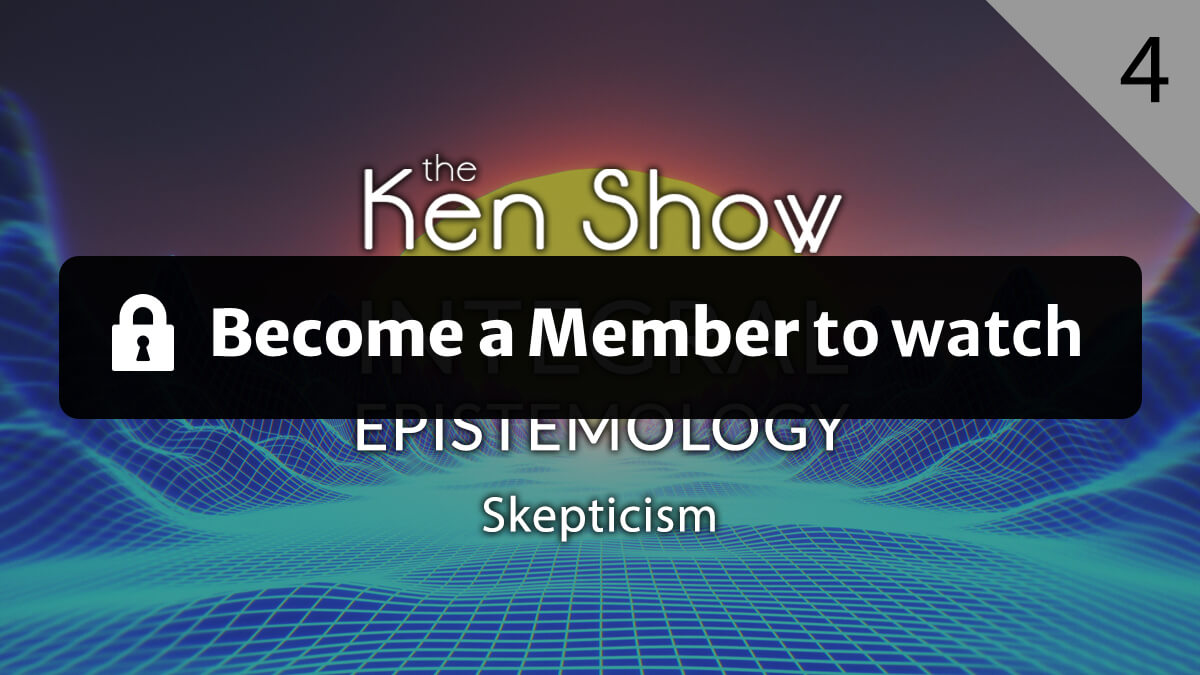
Skepticism is a position that questions the possibility of human knowledge, either in particular domains or on a general level. Skepticism does not refer to any one specific school of philosophy, but is rather a thread that runs through many epistemological debates. Ancient Greek skepticism began during the Hellenistic period in philosophy, which featured both Pyrrhonism (notably defended by Pyrrho and Sextus Empiricus) and Academic skepticism (notably defended by Arcesilaus and Carneades). Among ancient Indian philosophers, skepticism was notably defended by the Ajñana school and in the Buddhist Madhyamika tradition. In modern philosophy, René Descartes’ famous inquiry into mind and body began as an exercise in skepticism, in which he started by trying to doubt all purported cases of knowledge in order to search for something that was known with absolute certainty.
Part 5: Pragmatism
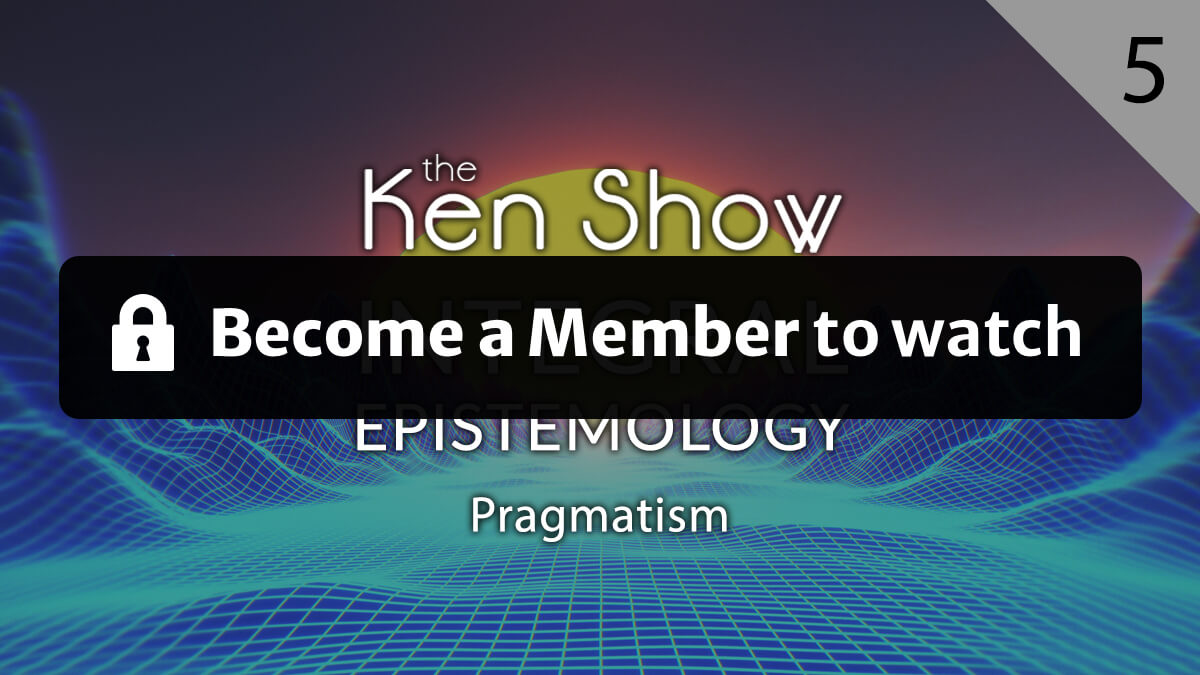
Pragmatism is an empiricist epistemology formulated by Charles Sanders Peirce, William James, and John Dewey, which understands truth as that which is practically applicable in the world. Pragmatists often treat “truth” as the final outcome of ideal scientific inquiry, meaning that something cannot be true unless it is potentially observable. Peirce formulates the maxim: ‘Consider what effects, that might conceivably have practical bearings, we conceive the object of our conception to have. Then, our conception of these effects is the whole of our conception of the object.’ This suggests that we are to analyse ideas and objects in the world for their practical value. This is in contrast to any correspondence theory of truth that holds that what is true is what corresponds to an external reality. William James suggests that through a pragmatist epistemology, theories “become instruments, not answers to enigmas in which we can rest.”
Contemporary versions of pragmatism have been most notably developed by Richard Rorty and Hilary Putnam. Rorty proposed that values were historically contingent and dependent upon their utility within a given historical period, Contemporary philosophers working in pragmatism are called neopragmatists, and also include Nicholas Rescher, Robert Brandom, Susan Haack, and Cornel West.
Part 6: Naturalized/Evolutionary Epistemology
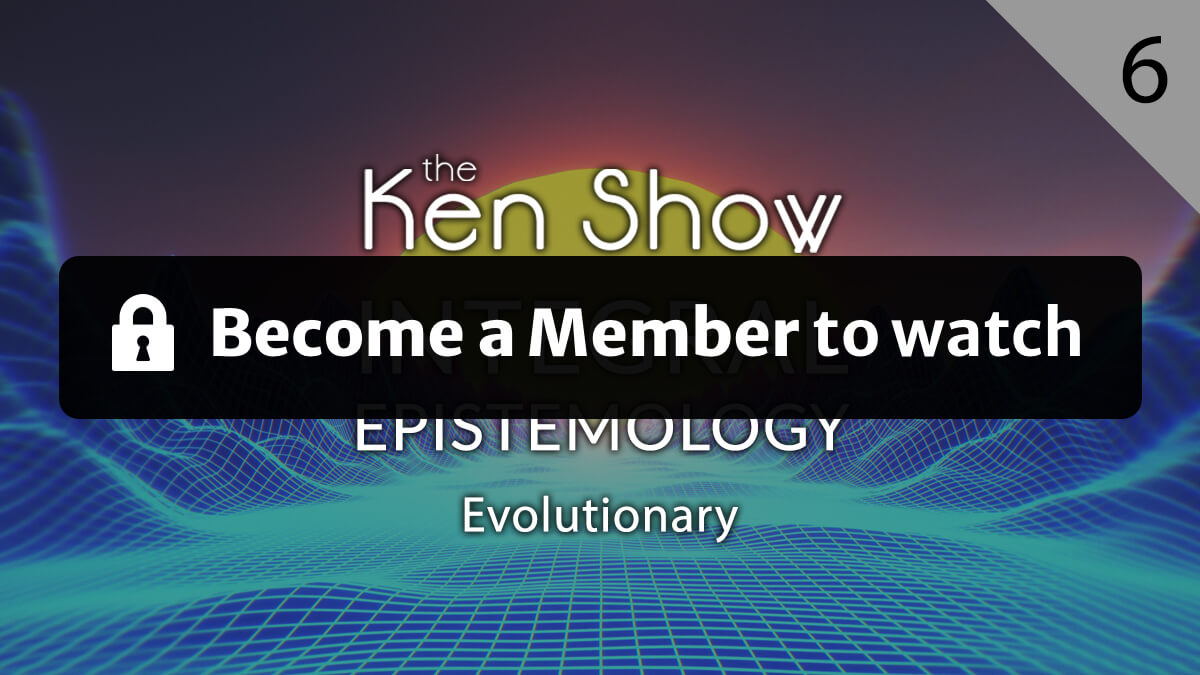
In certain respects an intellectual descendant of pragmatism, naturalized epistemology considers the evolutionary role of knowledge for agents living and evolving in the world. It de-emphasizes the questions around justification and truth, and instead asks, empirically, how reliable beliefs are formed and the role that evolution played in the development of such processes. It suggests a more empirical approach to the subject as a whole, leaving behind philosophical definitions and consistency arguments, and instead using psychological methods to study and understand how “knowledge” is actually formed and is used in the natural world. As such, it does not attempt to answer the analytic questions of traditional epistemology, but rather replace them with new empirical ones.
Naturalized epistemology was first proposed in “Epistemology Naturalized”, a seminal paper by W.V.O. Quine. A less radical view has been defended by Hilary Kornblith in Knowledge and its Place in Nature, in which he seeks to turn epistemology towards empirical investigation without completely abandoning traditional epistemic concepts.
Part 7: Feminist Epistemology
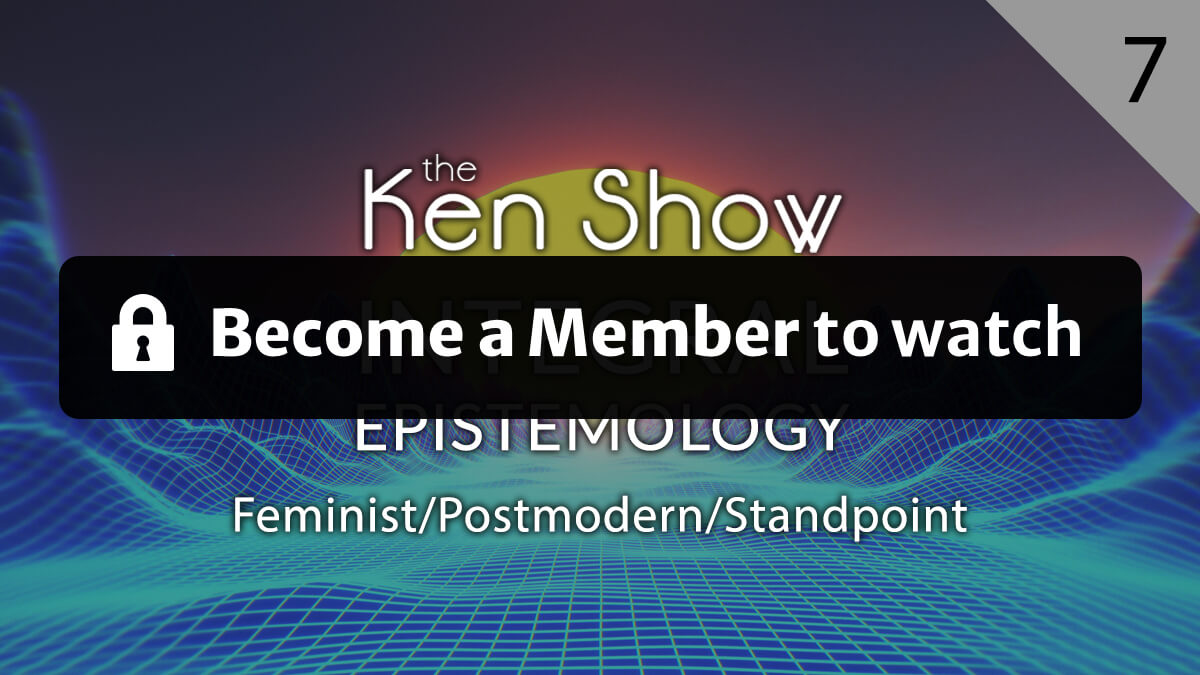
Feminist epistemology (with its subsets: feminist empiricism, postmodernism, and standpoint epistemology) applies feminist theory to epistemological questions. It began to emerge as a distinct subfield in the 20th century. Prominent feminist epistemologists include Miranda Fricker (who developed the concept of epistemic injustice), Donna Haraway (who first proposed the concept of situated knowledge), Sandra Harding, and Elizabeth Anderson. Harding proposes that feminist epistemology can be broken into three distinct categories: Feminist empiricism, standpoint epistemology, and postmodern epistemology.
Feminist epistemology has also played a significant role in the development of many debates in social epistemology.
Part 8: Relativism & Constructivism
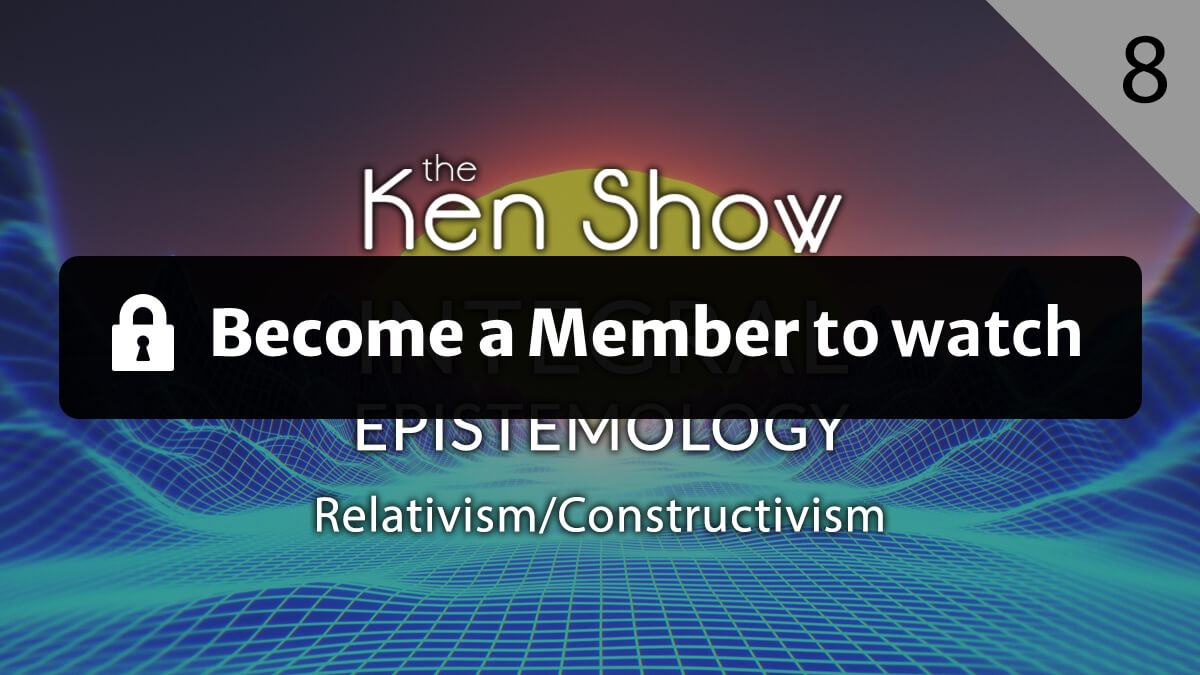
Epistemic relativism is the view that what is true, rational, or justified for one person need not be true, rational, or justified for another person. Epistemic relativists therefore assert that while there are relative facts about truth, rationality, justification, and so on, there is no perspective-independent fact of the matter. Note that this is distinct from epistemic contextualism, which holds that the meaning of epistemic terms vary across contexts (e.g. “I know” might mean something different in everyday contexts and skeptical contexts). In contrast, epistemic relativism holds that the relevant facts vary, not just linguistic meaning. Relativism about truth may also be a form of ontological relativism, insofar as relativists about truth hold that facts about what exists vary based on perspective.
Constructivism is a view in philosophy according to which all “knowledge is a compilation of human-made constructions, not the neutral discovery of an objective truth”. Whereas objectivism is concerned with the “object of our knowledge”, constructivism emphasizes “how we construct knowledge”. Constructivism proposes new definitions for knowledge and truth, which emphasize intersubjectivity rather than objectivity, and viability rather than truth. The constructivist point of view is in many ways comparable to certain forms of pragmatism.
Part 9: Idealism
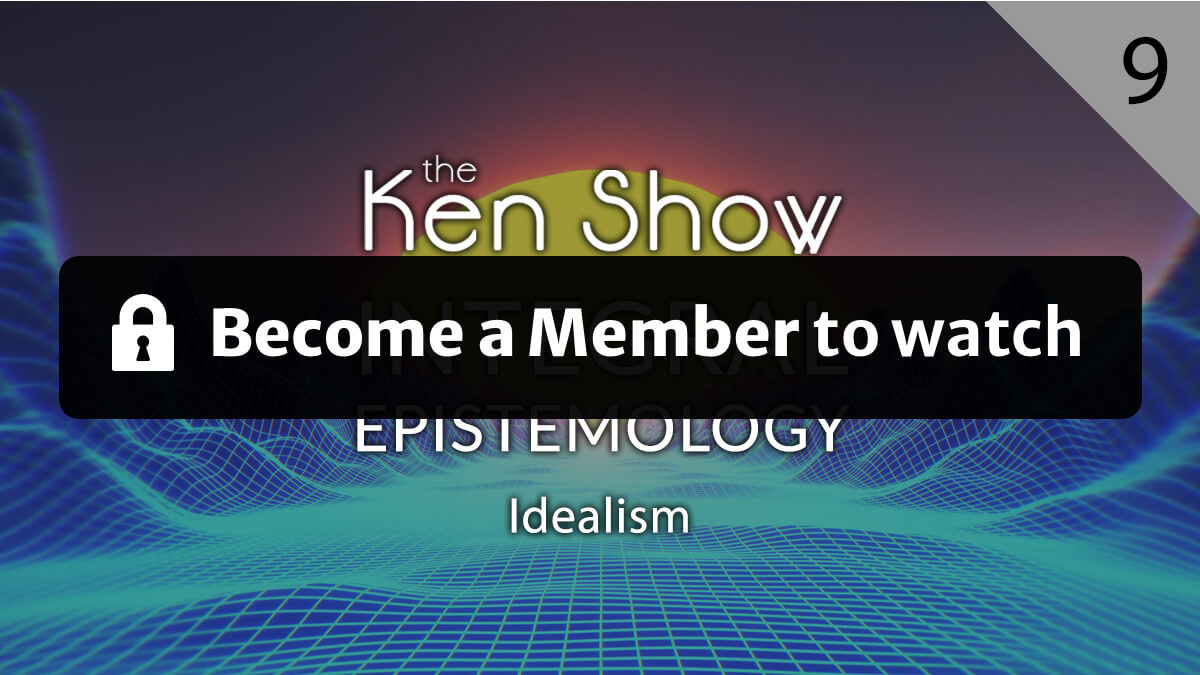
Idealism is a broad term referring to both an ontological view about the world being in some sense mind-dependent and a corresponding epistemological view that everything we know can be reduced to mental phenomena. First and foremost, “idealism” is a metaphysical doctrine. As an epistemological doctrine, idealism shares a great deal with both empiricism and rationalism. Some of the most famous empiricists have been classified as idealists (particularly Berkeley), and yet the subjectivism inherent to idealism also resembles that of Descartes in many respects. Many idealists believe that knowledge is primarily (at least in some areas) acquired by a priori processes, or that it is innate—for example, in the form of concepts not derived from experience. The relevant theoretical concepts may purportedly be part of the structure of the human mind (as in Kant’s theory of transcendental idealism), or they may be said to exist independently of the mind (as in Plato’s theory of Forms).
Some of the most famous forms of idealism include transcendental idealism (developed by Immanuel Kant), subjective idealism (developed by George Berkeley), and absolute idealism (developed by Georg Wilhelm Friedrich Hegel and Friedrich Schelling).
Part 10: Bayesian epistemology
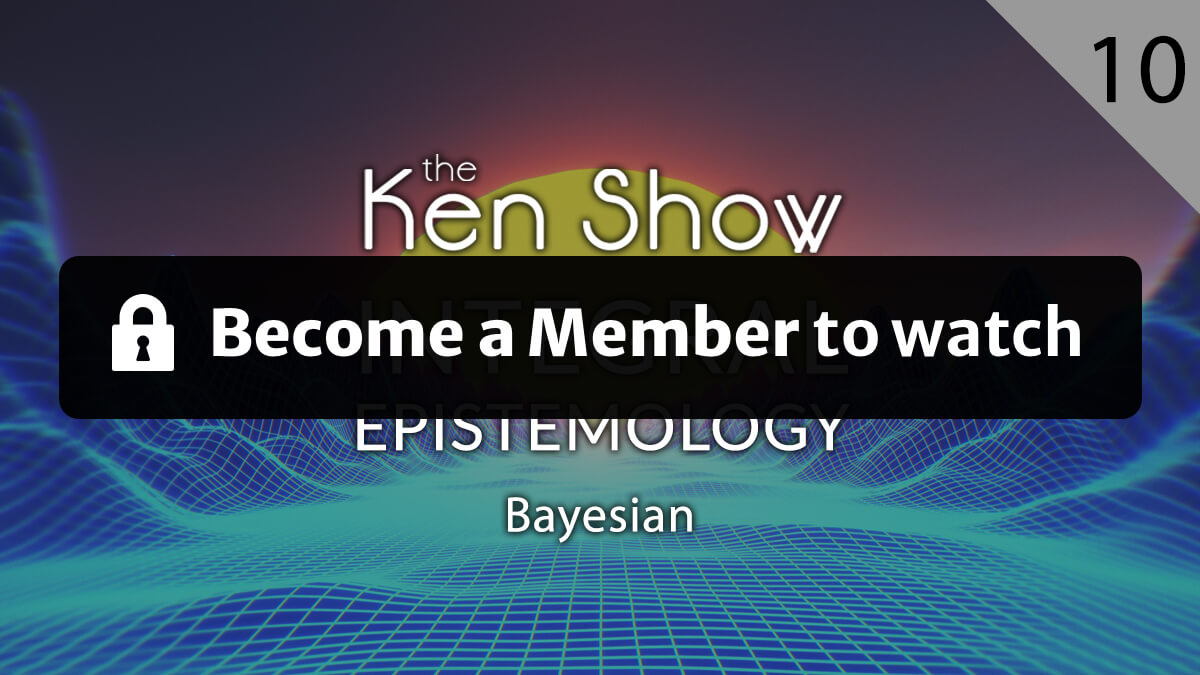
Bayesian epistemology is a formal approach to various topics in epistemology that has its roots in Thomas Bayes’ work in the field of probability theory. One advantage of its formal method in contrast to traditional epistemology is that its concepts and theorems can be defined with a high degree of precision. It is based on the idea that beliefs can be interpreted as subjective probabilities. As such, they are subject to the laws of probability theory, which act as the norms of rationality. These norms can be divided into static constraints, governing the rationality of beliefs at any moment, and dynamic constraints, governing how rational agents should change their beliefs upon receiving new evidence. The most characteristic Bayesian expression of these principles is found in the form of Dutch books, which illustrate irrationality in agents through a series of bets that lead to a loss for the agent no matter which of the probabilistic events occurs. Bayesians have applied these fundamental principles to various epistemological topics but Bayesianism does not cover all topics of traditional epistemology.
Part 11: Indian Pramana
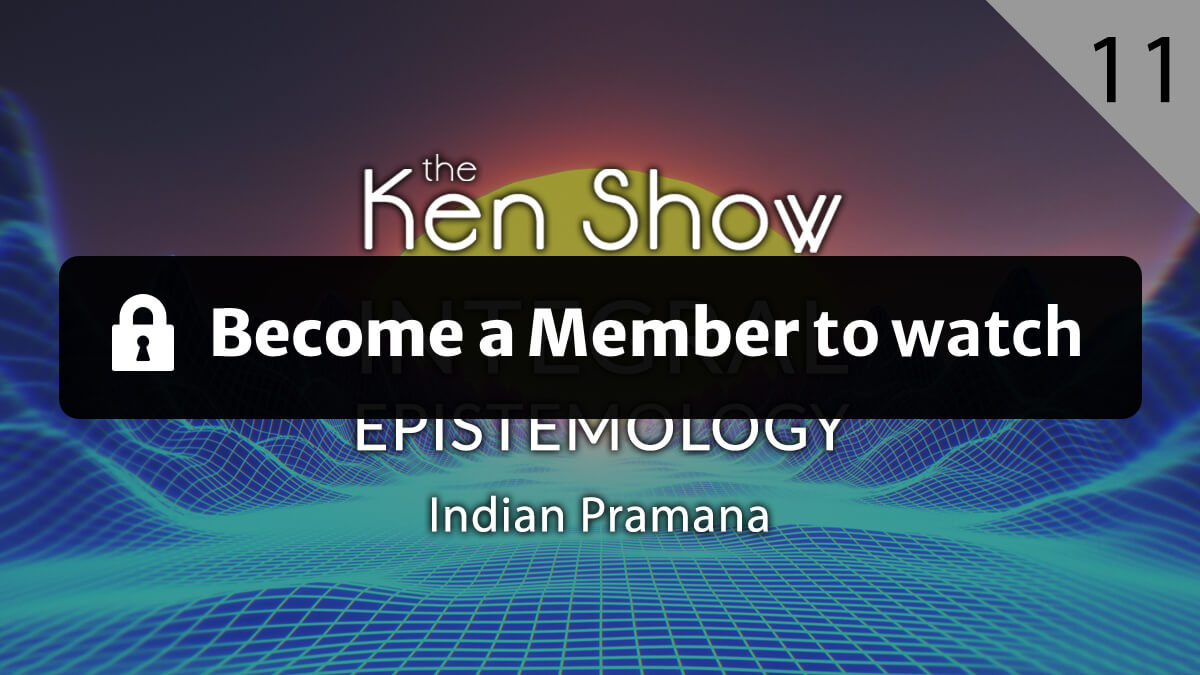
Indian schools of philosophy, such as the Hindu Nyaya and Carvaka schools, and the Jain and Buddhist philosophical schools, developed an epistemological tradition independently of the Western philosophical tradition called “pramana”. Pramana can be translated as “instrument of knowledge” and refers to various means or sources of knowledge that Indian philosophers held to be reliable. Each school of Indian philosophy had their own theories about which pramanas were valid means to knowledge and which were unreliable (and why). A Vedic text, Taittirīya Āraṇyaka (c. 9th–6th centuries BCE), lists “four means of attaining correct knowledge”: smṛti (“tradition” or “scripture”), pratyakṣa (“perception”), aitihya (“communication by one who is expert”, or “tradition”), and anumāna (“reasoning” or “inference”).
In the Indian traditions, the most widely discussed pramanas are: Pratyakṣa (perception), Anumāṇa (inference), Upamāṇa (comparison and analogy), Arthāpatti (postulation, derivation from circumstances), Anupalabdi (non-perception, negative/cognitive proof) and Śabda (word, testimony of past or present reliable experts). While the Nyaya school (beginning with the Nyāya Sūtras of Gotama, between 6th-century BCE and 2nd-century CE) were a proponent of realism and supported four pramanas (perception, inference, comparison/analogy and testimony), the Buddhist epistemologists (Dignaga and Dharmakirti) generally accepted only perception and inference. The Carvaka school of materialists only accepted the pramana of perception, and hence were among the first empiricists in the Indian traditions. Another school, the Ajñana, included notable proponents of philosophical skepticism.
The theory of knowledge of the Buddha in the early Buddhist texts has been interpreted as a form of pragmatism as well as a form of correspondence theory. Likewise, the Buddhist philosopher Dharmakirti has been interpreted both as holding a form of pragmatism or correspondence theory for his view that what is true is what has effective power (arthakriya). The Buddhist Madhyamika school’s theory of emptiness (shunyata) meanwhile has been interpreted as a form of philosophical skepticism.
The main contribution to epistemology by the Jains has been their theory of “many sided-ness” or “multi-perspectivism” (Anekantavada), which says that since the world is multifaceted, any single viewpoint is limited (naya – a partial standpoint). This has been interpreted as a kind of pluralism or perspectivism. According to Jain epistemology, none of the pramanas gives absolute or perfect knowledge since they are each limited points of view.
Part 12: How Do We Categorize Integral Theory?
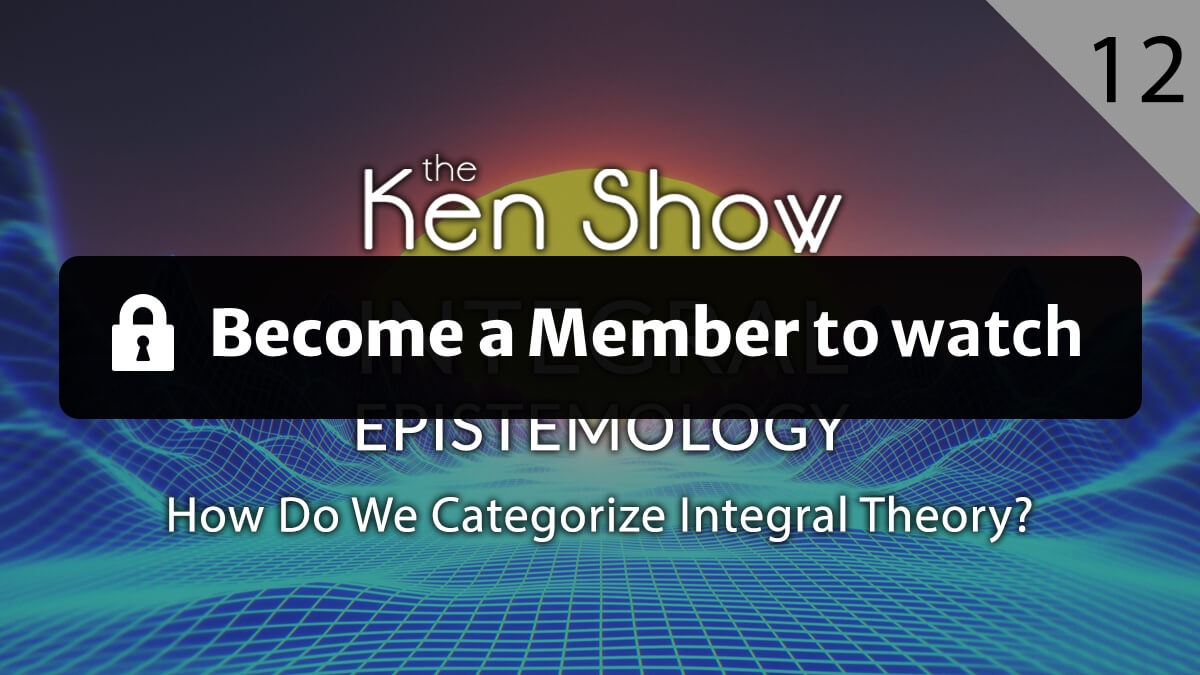
Considering all these different conflicting schools, how do we “categorize” integral epistemology using these classic terms? Is it a form of idealism? Emergentism? Monism? Dualism? Pluralism? Or does it break these categories altogether?
We hope you enjoyed this episode of The Ken Show! Let us know what you think in the comments below, and also be sure to let us know if you have any questions for future episodes!
Written and produced by Corey deVos
Music by Stuart Davis

Become a member to access the full episode
Start building your big picture mind & support the global emergence of Integral consciousness

“Integral Life is the most important and globally-relevant platform for the leading edge of Integral consciousness evolution”
– Eugene P.
More Integral Theory Resources
Being vs. Knowing: Ending the Debate Between Epistemology and Ontology
Ken Wilber
Ken Wilber offers a thorough examination of the classic philosophical conflicts between ontology and epistemology, while suggesting a way to seamlessly integrate the two and end this philosophical debate once and for all.
Integral Semiotics: The Language of Liberation
Ken Wilber
How do we derive meaning from the words we use? An integral approach fundamentally changes how we understand the nature of language, communication, and shared meaning. Integral Semiotics offers a comprehensive map or framework of most of the known worldspaces available to humans. Since most of these worldspaces do not possess simple location or material form, they are likely to be denied reality by most realist, empirical, or behavioral schools—where in fact they are home of the vast majority of those things most humans hold valuable. Integral Semiotics is thus a matter, not just of linguistics, but of emancipation.
The Three Principles of Integral Thinking
Ken Wilber
Ken offers an in-depth summary of the three integrative principles, nonexclusion, enfoldment, and enactment, which he uncovered while putting together his Integral Methodological Pluralism framework — a robust meta-paradigmatic scaffolding that seeks to honor, include, and integrate multiple paradigms and methodologies and practices across all domains of human knowing.
Kosmic Address: Everything In Its Right Place
Ken Wilber
Ken Wilber explores the notion of Kosmic Address — a universal “indexing system” that uses the integral framework to situate and constellate all known phenomena (physical, mental, and spiritual), as well our capacity to discern that phenomena. This allows us to not only better understand the nature of each component part, but also how that part relates to every other part and fits into the whole, revealing the hidden architecture of knowledge itself.
Previous Episodes of The Ken Show
About Ken Wilber
Ken Wilber is a preeminent scholar of the Integral stage of human development. He is an internationally acknowledged leader, founder of Integral Institute, and co-founder of Integral Life. Ken is the originator of arguably the first truly comprehensive or integrative world philosophy, aptly named “Integral Theory”.
About Corey deVos
Corey W. deVos is editor and producer of Integral Life. He has worked for Integral Institute/Integal Life since Spring of 2003, and has been a student of integral theory and practice since 1996. Corey is also a professional woodworker, and many of his artworks can be found in his VisionLogix art gallery.














